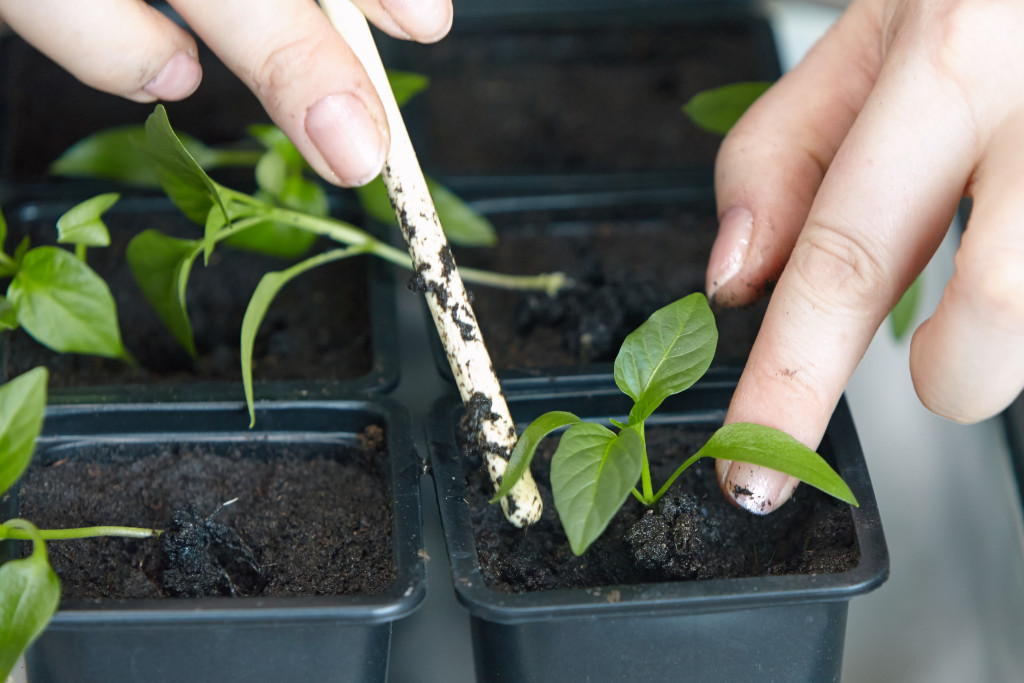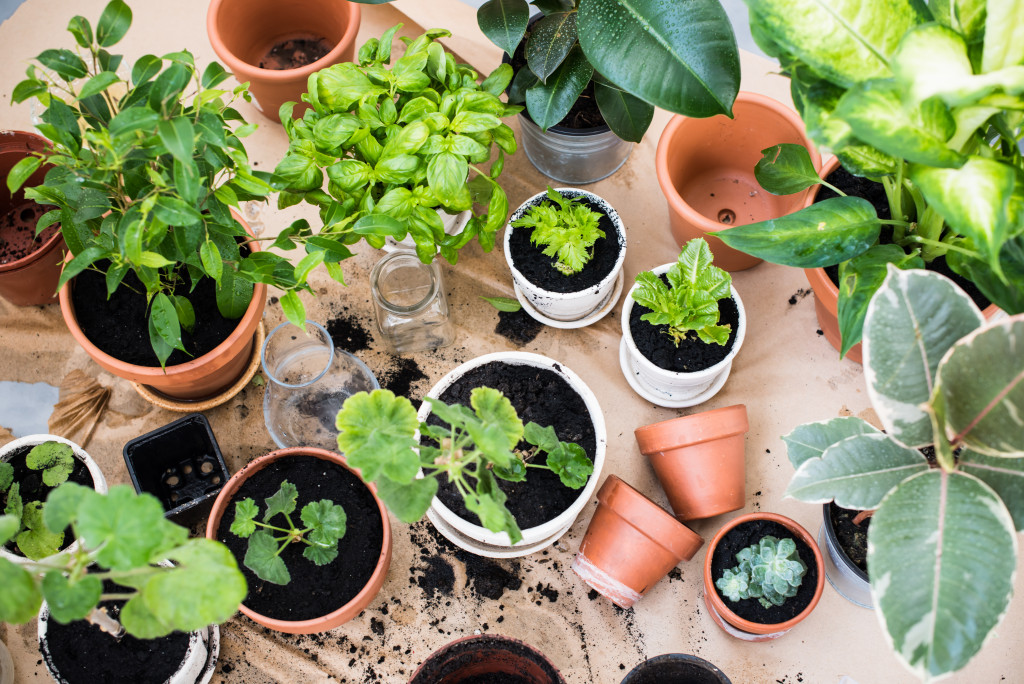A patio garden can provide a lovely spot to relax and enjoy the outdoors, especially if it’s well-designed and well-maintained. They are smaller, making them ideal for people who have limited space. Since these plants are in pots, they also require less water and fertilizer than traditional gardens, and the plants are often more resistant to pests and diseases. In addition, patio gardens are a good way to start gardening if you don’t want to dig up your yard yet. So if you’re interested in starting a patio garden, here are five tips to get started:
Prepare Your Patio
Before you start adding planters, it’s essential to prepare your patio space. If your patio is made of concrete, you’ll have to ensure there’s proper drainage. And if your patio is made of wood, you have to be more careful about the moist of your planters since it’s more susceptible to rot. You can use hanging planters or avoid overwatering your plants so your patio won’t stain.
Another factor to consider would be your patio roofing. This is because some plants require less sunlight than others. If you aren’t careful, your plants might get too much sun and cause them to wither. That’s why your roofing also plays a role in helping you care for your patio garden. You can protect your plants from direct sunlight by hiring insulated roof panel installation services that can offer quality materials and services. Doing so will help reflect heat away from your patio so that it stays cooler for your plants even if the weather gets too hot.
Choose the Right Plants
Not all plants are suitable for growing in pots or containers. When choosing plants for your patio garden, select varieties that will do well in limited space and with less water than plants in traditional gardens. This includes annuals, succulents, and herbs. Moreover, you should also select plants that are appropriate for the climate. If you live in an area with cold winters, it is advisable to choose plants that are winter-hardy, such as camellias, pansies, and hellebores. Considering these factors, you can ensure that your plants will thrive in their new home.
Use Good Quality Soil
As any gardener knows, the soil is essential for growing healthy plants. Good quality soil is loose and crumbly, allowing roots to easily spread and access the water and nutrients they need. In addition, good quality soil helps regulate moisture levels, preventing drought stress and root rot. It also provides essential minerals and other nutrients that plants need to grow. While it is possible to improve the quality of your soil through amendments and composting, it is often easiest to start with a good quality soil mix. Whether you are planting in containers or in the ground, good quality soil will help ensure that your plants have the best chance of thriving.

Water Regularly but Avoid Over-Watering
Potted plants are a great addition to any home, bringing a touch of nature to your spaces. However, they can be tricky to care for, as they require more frequent watering than plants in the ground. However, over-watering is a common mistake, leading to root rot and other problems. A good indicator that your plant needs watering is if the first inch deep of soil is dry. When you water your plants, ensure you do so around the root area of a plant so all roots have access to water. Likewise, let the soil dry out slightly between waterings and check the pots regularly to ensure they’re not sitting in water. With a little care and attention, your potted plants will thrive.
Fertilize Regularly
Plants need nutrients to grow, and when confined to a pot, they can quickly deplete the soil of these essential elements. As a result, it is important to fertilize potted plants once a week or every two weeks. Many types of fertilizer are available, but organic options are often the best for potted plants. Manure and compost can provide a slow-release source of nutrients and help improve drainage and aeration. When applying fertilizer, follow the package’s directions, as too much fertilizer can damage roots and leave plants susceptible to disease. With proper care and attention, potted plants can thrive and provide years of enjoyment.
With some planning and care, you can ensure your plants have the best chance to thrive. Ensure you always set aside time to tend to your plants and keep an eye on their watering, fertilizing, and general health. With the right tips and tricks, you can create a beautiful patio garden that will last for years.

